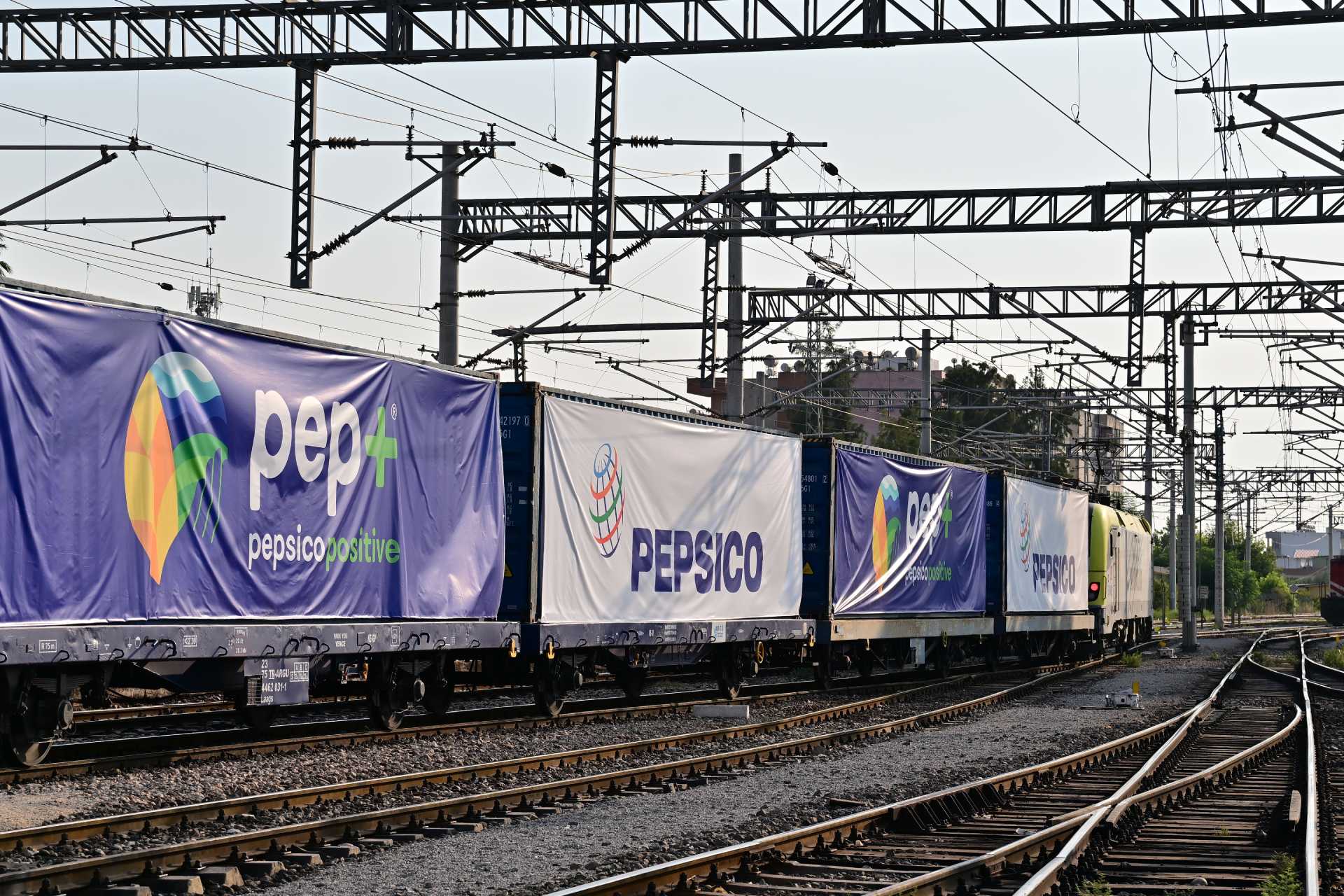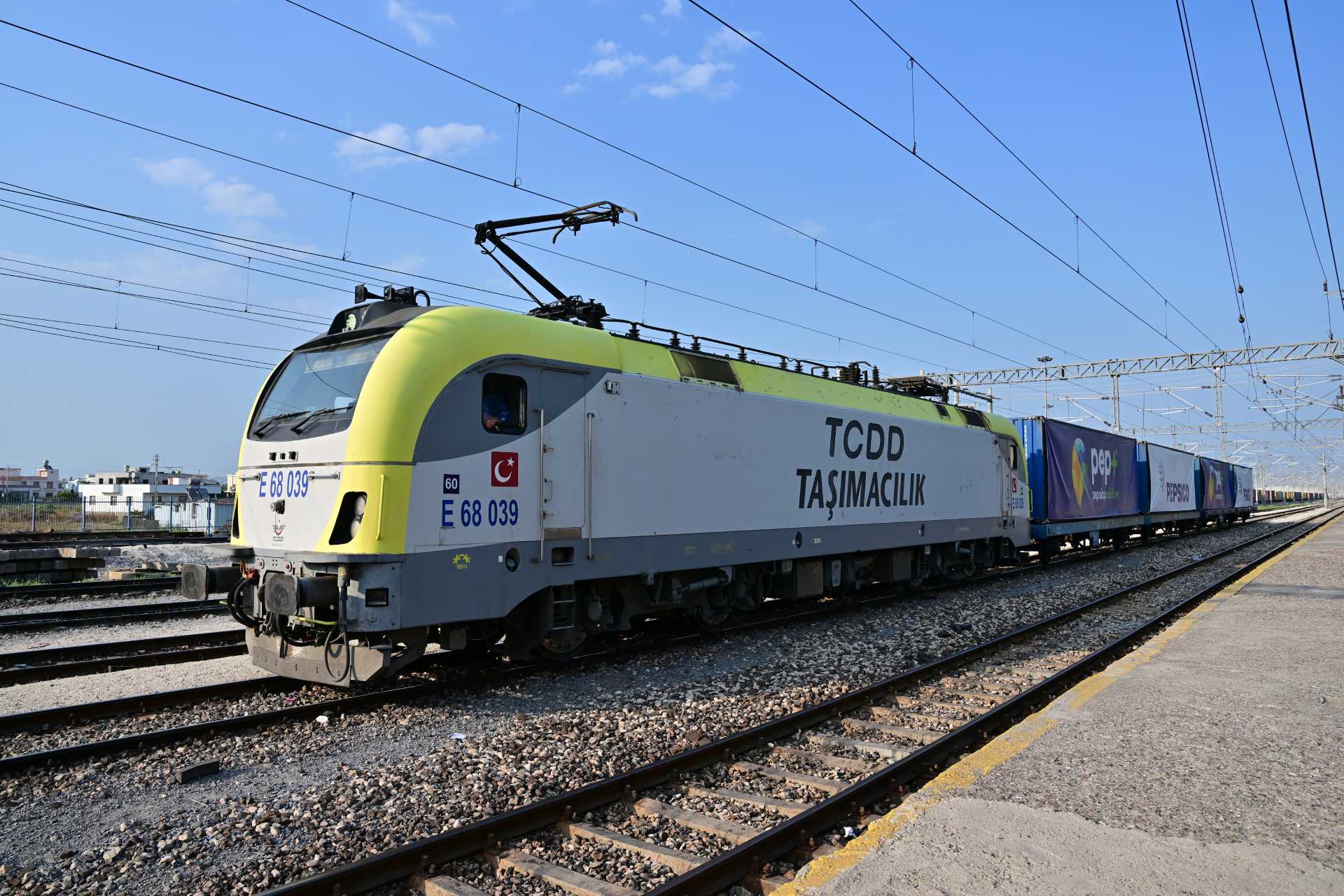PepsiCo Türkiye has started using an electric train to transport chips between its Tarsus and Suadiye factories in partnership with Arkas Rail. This makes them the first company in the FMCG sector in Türkiye to use an electric train for food transportation. PepsiCo has reduced its carbon footprint by 83% compared to road transportation with this method, taking another step towards a sustainable world.
PepsiCo is taking more and more steps to help make this world more habitable by focusing on nature and the environment as part of the pep+ strategy, which refers to the company’s end-to-end strategic transformation.
PepsiCo is working hard to reduce its carbon footprint to combat climate change as part of its Positive Value Chain, which is one of the three key pillars of the aforementioned strategy.
PepsiCo is committed to reducing its emissions by 75% by 2030. To achieve this, the company is particularly investing in renewable energy and electric vehicles.
PepsiCo Türkiye, a business unit that plays a solid role in PepsiCo’s global targets, has become one of the first companies to achieve the goal of reaching 100% renewable electricity within PepsiCo, thanks to its investments in renewable energy. PepsiCo Türkiye has recently expanded its fleet to include electric vehicles and has commenced food transportation between its factories with an electric train.
Shipping chips by electric train from its factory in Akdeniz, Mersin to its Suadiye factory in Kartepe, Kocaeli, PepsiCo Türkiye has made another groundbreaking novelty with the project that was developed by the company’s shipping and logistics teams. PepsiCo thus has become the first company in the FMCG sector in Türkiye to use an electric train for food transportation. The use of electric trains in this transportation process results in an 83% reduction in carbon footprint compared to road transportation.

Following the first shipment, PepsiCo Türkiye General Manager Evrim Sen stated: “At PepsiCo Türkiye, we are committed to minimizing the effects of climate change and creating a more sustainable life through achieving the zero-carbon target. As a pioneering company in Türkiye in the field of renewable and clean energy resources, we are committed to reducing our carbon footprint in transportation. To this end, we are increasing the number of electric vehicles in our fleets while at the same time transporting foodstuff to prevent the high carbon emissions caused by long-range road transportation. A first in Türkiye… We managed to prevent 3.17 metric tons of carbon emissions in the first two-way service between Tarsus and Kocaeli, which has helped nature gain about 7.2 trees. With the continuation of these services, we will significantly reduce the carbon emissions driven by transportation. I would like to thank all my colleagues who contributed to this project, which reduced carbon emissions by 83 percent compared to road transportation.
Arkas Rail General Manager Hamit Gokmen said: “At Arkas Rail, we are focusing on sustainable transportation solutions that are compatible with the European Green Deal.
We are expanding and optimizing railway services to reduce the carbon footprint and contribute to sustainable logistics. At Arkas Rail, we will be providing our stakeholders with broader operational solutions thanks to the five dual locomotives that we will receive in April 2025.
We pay great attention to our collaboration with PepsiCo, a global brand, to reduce our carbon footprint. The decision by big companies like PepsiCo to opt for railway transportation will inspire other companies to adopt more environmentally sensitive and sustainable practices.”
Within the scope of the first shipment, containers were loaded onto an electric train at the factory in Akdeniz, Mersin, to be delivered to the PepsiCo Suadiye factory in Kocaeli, which were transported to Suadiye-Tarsus afterward.
This route, which exceeds 1600 km in a two-way service, has been found to result in 950 kg of CO2 emissions if the same load is transported by road. However, if the same load is transported via an electric train, this figure declines to 160 kg.
Although electric trains were only used for transporting passengers and several loads before, they are now used for food transportation thanks to PepsiCo’s project.


